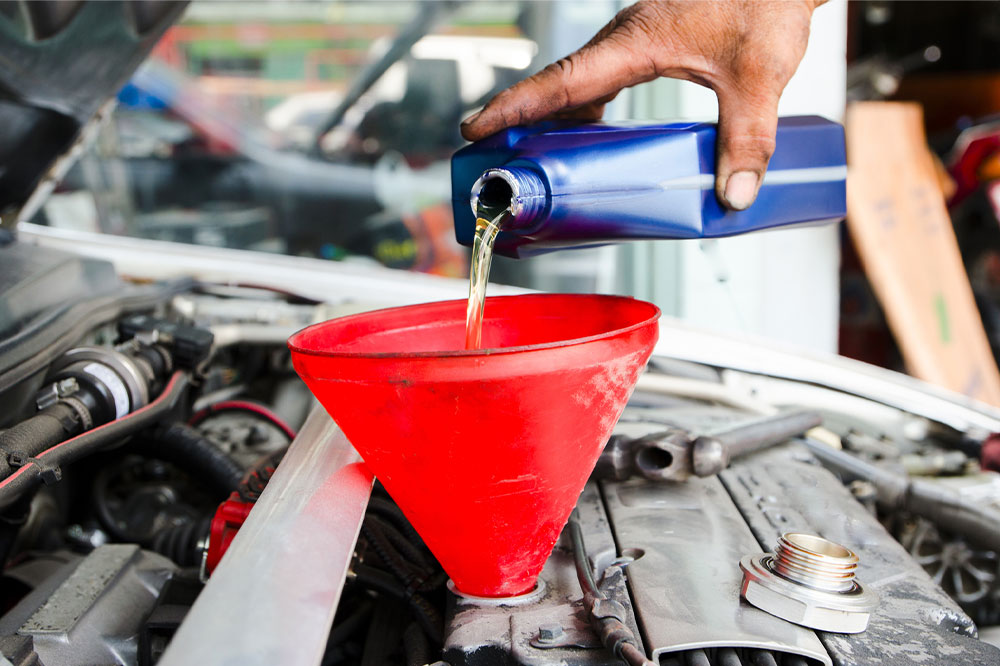7 Common Engine Oil Replacing Blunders to Avoid

Engine oil is one of the essential components of any vehicle, as it helps to keep the engine components lubricated, prevents the build-up of dirt and debris, and helps to reduce engine wear. Unfortunately, many people must correct their mistakes when replacing engine oil, which can lead to costly repairs and a shortened engine life span. Therefore, this article will examine the five common engine oil replacement blunders and how to avoid them.
Wrong timing
One of the most common engine oil replacement blunders is not following the manufacturer’s recommended oil change interval. Different manufacturers recommend different oil change intervals, so it is crucial to ensure you follow the correct one. If you do not, it could lead to your engine oil becoming dirty or degraded, which can cause damage to your engine.
It is also important to remember that oil change intervals can vary depending on your vehicle’s use. For example, if you drive your car for short trips or in stop-and-go traffic, you may need to change your oil more frequently than driving long distances on the highway. Check your owner’s manual for your vehicle’s recommended oil change interval.
Inaccurate mileage
Another common engine replacement blunder is not following the manufacturer’s recommended oil change mileage. Many modern vehicles come with oil change reminders that tell you when to change your oil based on the mileage your vehicle has been driven. Follow these reminders to avoid getting dirty or degraded engine oil.
It’s also important to remember that oil change intervals can vary depending on your vehicle’s use. For example, if you drive your car for short trips or in stop-and-go traffic, you may need to change your oil more frequently than driving long distances on the highway.
Incorrect oil
Another common engine oil replacement blunder is using different oil for your vehicle. Other cars require different types of oil, so each car’s manufacturer recommends that it is good for the vehicle to use the correct type. If you use the right kind of oil, it can lead to better lubrication and an increase in engine performance.
It is also essential to ensure you use the correct oil viscosity for your vehicle. Viscosity measures how thick or thin the oil is, and using the wrong viscosity can lead to poor engine performance and increased wear. Check your owner’s manual for your vehicle’s recommended oil viscosity.
Unsuitable filter
Another common engine oil replacement blunder is using a different oil filter. Other cars require different oil filters, and using the wrong type can lead to poor lubrication and increased engine wear. Ensure you are using the correct type and size of oil filter for your vehicle.
It is also vital to ensure you are using a quality oil filter. Cheap oil filters can have a shorter lifespan and may not be able to properly filter out dirt and debris, which can lead to engine damage. Make sure you’re using a quality oil filter from a reputable brand.
Forgetting to tighten the oil drain plug
Another common engine oil replacement blunder is forgetting to tighten the drain plug. The oil drain plug is a small bolt that holds the oil pan in place, and it needs to be properly tightened to prevent oil leaks. If it is not tightened correctly, it can lead to oil leaks and engine damage.
Check the oil drain plug after you’ve changed the oil and ensure it’s properly tightened. If it is not, tighten it until it is, and then recheck it to ensure it is tight. This will help to prevent oil leaks and keep your engine in good condition.
Not lubricating the oil filter gasket
Another common engine oil replacement blunder is forgetting to lubricate the oil filter gasket. The oil filter gasket is a small rubber ring that seals the oil filter in place, and it needs to be adequately lubricated to prevent oil leaks. If it is not lubricated correctly, it can lead to oil leaks and engine damage.
Make sure to use the correct type of lubricant for your oil filter gasket, as some types of lubricant can damage the gasket. This will help to prevent oil leaks and keep your engine in good condition. It is safe in the long run to use the same kind of lubricant the manufacturer recommends for your vehicle.
Incorrect oil levels
Another common engine oil replacement blunder is not checking the oil level after replacing the oil. It is vital to ensure the oil level is correct after an oil change, as an incorrect oil level can lead to poor lubrication and an increase in engine wear.
Check the oil level after changing it and ensure it is correct. If the oil level is too low, add more until it is accurate. If the oil level is too high, drain some oil until it is correct.
Tips on avoiding common engine oil replacement blunders
Now that you know the five most common engine oil replacement blunders, here are some tips on how to avoid them:
- Make sure to follow the manufacturer’s recommended oil change interval and mileage.
- Make sure to use the correct type and viscosity of oil for your vehicle.
- Make sure to use the right type and size of oil filter for your car.
- Check and tighten the oil drain plug after an oil change.
- Finally, make sure to lubricate the oil filter gasket properly. Remember to check the oil level after an oil change.
By following these tips, you can ensure that your engine oil replacement is done correctly and your engine is kept in optimal condition.
For those who do not want to DIY
There are numerous service outlets throughout the country, and you can choose the one nearest to your location or home. However, if you want to avoid getting your hands dirty or need more time or mind space to get this done, you can take your car to the nearest oil change station. Some of the country’s best oil change stations are Official Ford Instant Oil Change, Quick Lane, and Valvoline Instant Oil Change center (VIOC). These oil or lube change service stations also offer discounts and offers from time to time which you can benefit from.
Conclusion
If you follow the tips outlined in this article, you can ensure that your engine oil replacement is done correctly and your engine is kept in optimal condition. By avoiding these common engine oil replacement blunders, you can keep your engine running smoothly for years.









